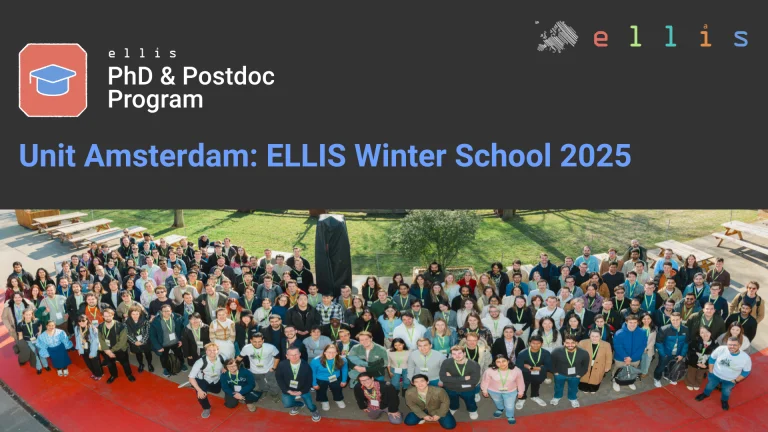



ELLIS Unit Amsterdam Hosts Second Edition of ELLIS Winter School Focused on Foundation Models
Speaker and ELLIS Member Jenia Jitsev (LAION) opened the event on Tuesday morning with a fascinating talk on 'Open Foundation Models - Scaling Laws and Generalization’. The talk focused on the derivation of scaling laws as a key method for predicting generalization and transfer in foundation models across different scales. It emphasized the importance of open, reproducible research pipelines - including data, training, and evaluation - and highlighted the limitations of current benchmarks in detecting generalization failures. New measurement tools based on simple, controlled problems were proposed to enable more accurate assessment.
Jenia Jitsev (LAION, left) giving a presentation together with Cees Snoek (Winter School co-organizer and ELLIS Fellow).
Following Jenia Jitsev, event coordinator and ELLIS Scholar Yuki Asano (University of Technology Nuremberg) and Sagar Vaze (Mistral AI) presented insights of their research fields. Yuki Asano explored academic vision-language models and post-pretraining strategies in computer vision, examining how models can be fine-tuned and adapted after initial pretraining to improve their performance on specific visual tasks. Sagar Vaze introduced the fundamentals of vision-language models, emphasizing the integration of visual and textual information to enable tasks like image captioning and visual question answering.
On day two, Diane Larlus (Naver Labs Europe) explored lifelong learning in the context of foundation models, addressing how these models can continuously adapt from pretraining to new data without forgetting previous knowledge. ELLIS Fellow Tim Rocktäschel (Google DeepMind, UCL) discussed his work on open-endedness - a research direction aimed at creating AI systems that continually expand their capabilities. He focused on training autonomous agents that set their own goals, developing large-scale world models for continual learning, and connecting these ideas to large language models to enable self-improving AI. Durk Kingma (Anthropic) then discussed the latest developments in Variational Autoencoders (VAEs), diffusion models, and optimizers, shedding light on these cutting-edge techniques in generative modeling and their optimization.
The Winter School attracted around 200 attendees.
Day three started out with a talk by Fahad Khan (MBZUAI, Linköping University) who provided insights into the generative AI era, focusing on how AI can gain a more detailed understanding of the visual world through generative models, improving both image generation and interpretation. ELLIS Fellow Rita Cucchiara (UNIMORE) presented research on multimodal foundation models with a focus on making them more retrieval-augmented, reflective, and safe. Her talk addressed how integrating retrieval mechanisms and reflective reasoning can enhance model performance and interpretability, while also emphasizing the importance of safety in multimodal AI systems. The afternoon was dedicated to a Poster session with bites and drinks.
The event concluded on day four featuring talks by ELLIS Fellow Wolfram Burgard (University of Technology Nuremberg) and ELLIS Scholar Amir Zamir (EPFL). Wolfram Burgard discussed the application of foundation models in robotics and autonomous systems, shedding light on how machine learning is transforming decision-making processes in intelligent systems and robots. Amir Zamir explored recent advances in multimodal learning, focusing on how models can effectively integrate and reason across multiple data types - such as vision, language, and audio - to achieve richer, more generalizable understanding.
Together, these talks covered a broad spectrum of AI research, from foundational model scaling and adaptation to generative AI and robotics, offering valuable perspectives on the future of machine learning to attendees. Elizaveta Mironovich, who is an ELIZA Master’s student at the University of Heidelberg, remarked on the accessibility and length of the talks, which provided ample opportunity for content and discussion.
Carlo Saccardi, an ELLIS PhD student at TU Delft, serves as a strong example for young ML researchers in Europe. He states that taking part in the ELLIS PhD Program has benefited him greatly - his research visit to the University of Cambridge led to fruitful collaborations, and events like this Winter School offer valuable networking opportunities to connect with other ELLIS students. Jenia Jitsev also remarked on the broader phenomenon of young talent leaving Europe, emphasizing that the ELLIS network stands out as a rare exception. In his view, this talent drain is largely driven by conservative investment strategies that limit opportunities for ambitious research within Europe.
Iconic Dutch canal houses during the canal cruise.
View from the A’DAM Lookout in Amsterdam.
Another benefit of attending the event were the social activities, including a visit to the ‘A’DAM Lookout’, an observation deck with 360 degrees view of the city, and a canal cruise showcasing Amsterdam’s historic buildings. Both activities were even more enjoyable as Amsterdam showed itself from its best side with brilliant, sunny skies all week!
****
Photographs taken by Albert Stevanus
